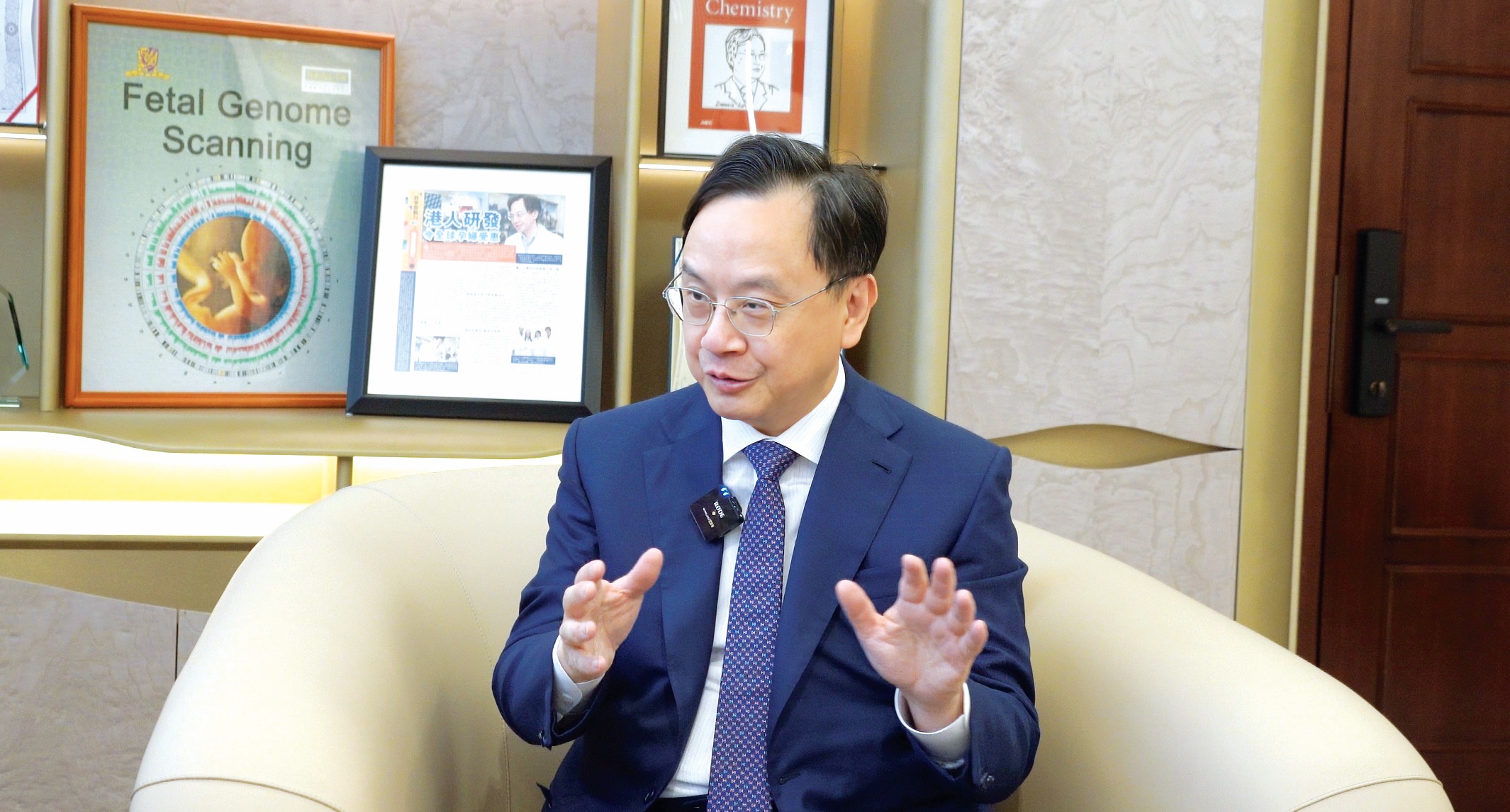
Dennis Lo Yuk-ming, president of the Hong Kong Academy of Sciences and a leading molecular biologist, praised Hong Kong’s evolving innovation ecosystem, citing increased government funding, growing recognition of Hong Kong scientists, and industrial synergy within the Guangdong-Hong Kong-Macao Greater Bay Area.
In an exclusive interview with China Daily on Friday, Lo, who is also president of the Chinese University of Hong Kong, highlighted the expanding exchange of data within the Greater Bay Area as a key driver of Hong Kong’s innovation capabilities.
“Research funding (for a single project) has escalated from several hundred thousand Hong Kong dollars in my early career to possibly several hundred million Hong Kong dollars today,” Lo said.
He said such resources available to local scientists compare favorably with those in any region worldwide. Hong Kong’s five universities, which ranked within the top 100 of the QS World University Rankings, have established the city as a premier destination for talent from across the world.
Earlier this week, Dai Xi, a physicist from the Hong Kong University of Science and Technology, received the Future Science Prize — a prestigious nongovernmental Chinese mainland award that recognizes excellence in science and technology.
READ MORE: HKUST physicist awarded 2025 Future Science Prize
Among the 46 winners over the prize’s 10-year history, six of them are Hong Kong-based. Lo, a laureate in the prize’s 2016 edition and co-chair of the Program Committee for 2025 Future Science Prize Week, said, “This proportion is proof of Hong Kong scientists’ research prowess.”
Lo added local research and development institutions are dedicated to advancing the special administrative region’s scientific research by nurturing young scientists and attracting more global talent.
For example, CUHK has extended offers to students facing challenges studying in the United States under political turmoil, and applications it received from nonlocal students have increased by 50 percent this year, a record high.
Lo said that deeper cooperation within the Greater Bay Area is crucial for boosting Hong Kong’s scientific research, especially in cross-border data flow. His insights align with the city’s development plan for the Hong Kong Park of Hetao Shenzhen-Hong Kong Science and Technology Innovation Cooperation Zone, one of the major R&D platforms within the Greater Bay Area.
Lo said that Hong Kong’s small economy and population are limiting its capacity for large-scale research. Therefore, the integration with the Greater Bay Area — an 11-city cluster with a population of over 87 million — serves as a critical opportunity for Hong Kong researchers.
ALSO READ: CUHK chief prioritizes talent, innovation, global reach
Lo discussed the potential for cross-boundary data exchange to facilitate scientific research in artificial intelligence, biotech and medicine. Addressing data security concerns, Lo said the key is to always prepare in advance.
Lo also highlighted the importance of patent protection to encourage innovation and maintain a business-friendly environment. The Hong Kong Academy of Sciences has been organizing lectures to help researchers protect their intellectual property, he said.
Contact the writer at atlasshao@chinadailyhk.com


